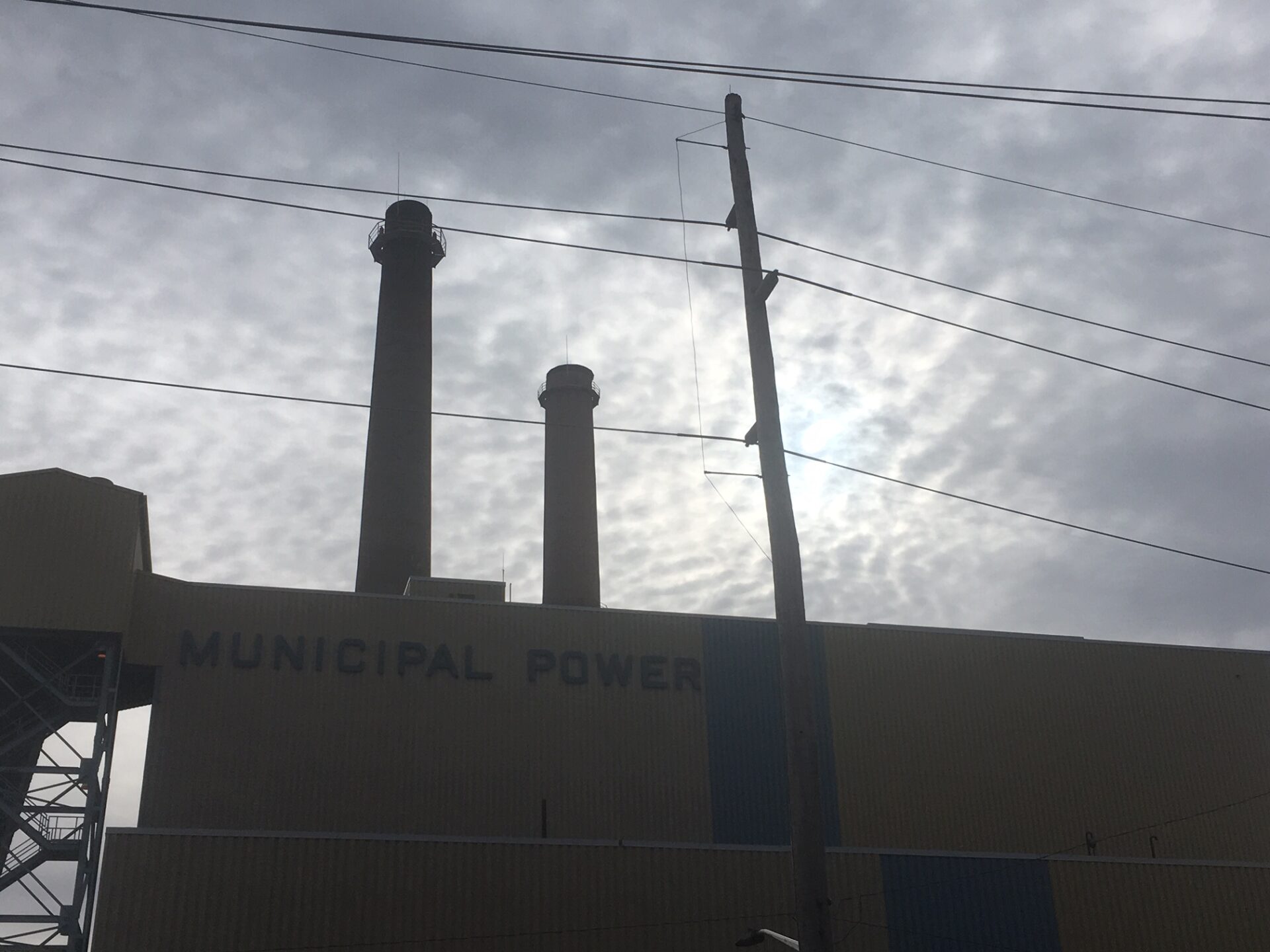YOU GAZE AT them from out on the Lake, and they look like bookends to the city of Marquette. One in the north, the other in the south.
Not especially pretty bookends. Masses of metal, stacks reaching skyward, and in the not-too-distant past, those pipes were sending smoke into our pristine skies.,
The smoke is gone, fortunately. And soon those two bookends–the two coal-fired power plants, remnants of Marquette’s industrial past–will also disappear.
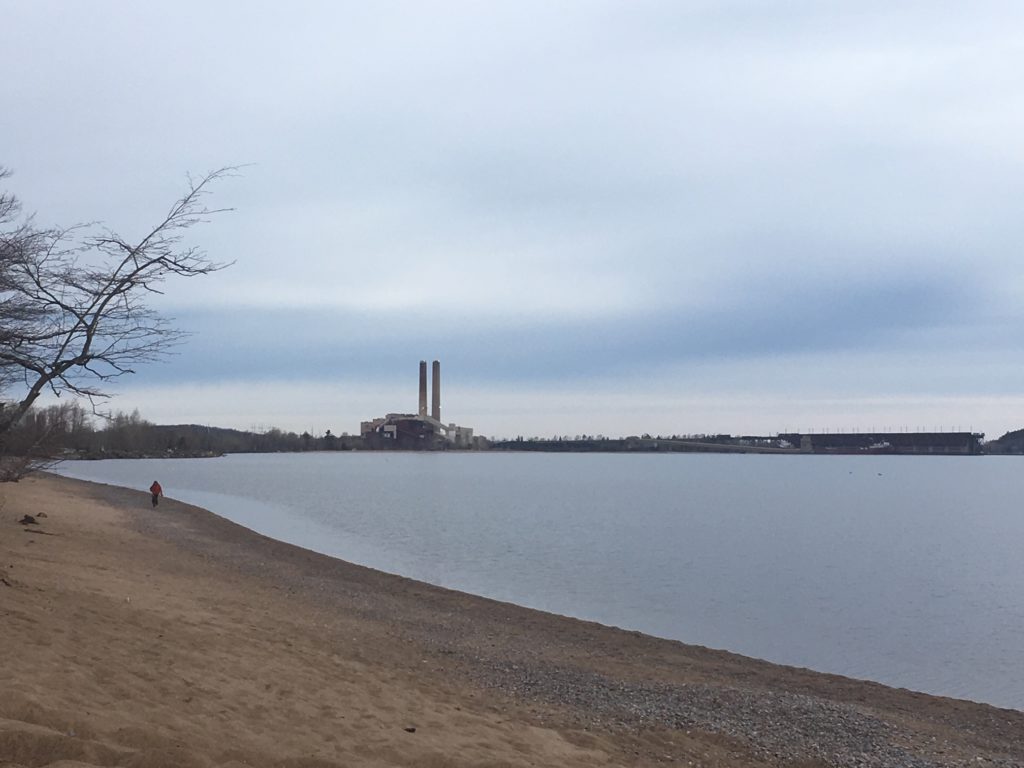
“No single event in this town’s history will do more to improve our shoreline than those two plants coming down,” says mayor Fred Stonehouse, who’s also a maritime historian. “The environmental impact will be dramatic.”
The Shiras Steam Plant, owned by the Bureau of Power and Light, and the Presque Isle Power Plant, owned by WEC Energy Group, are no longer needed. They’re relics. They’ve been replaced by more modern, efficient, environmentally friendly power plants away from the shoreline.
So, what happens now to those valuable shoreline properties?
The Shiras Plant: “We’re going to tear it down, and flatten it, and then it’ll be grass and sand again.,” says Tom Tourville, the chairman of the BLP Board.
And then?
Well, the site totals twelve acres, and half of that will still be occupied by the BLP substation and the port, which is being used by Cliffs for shipping in limestone.
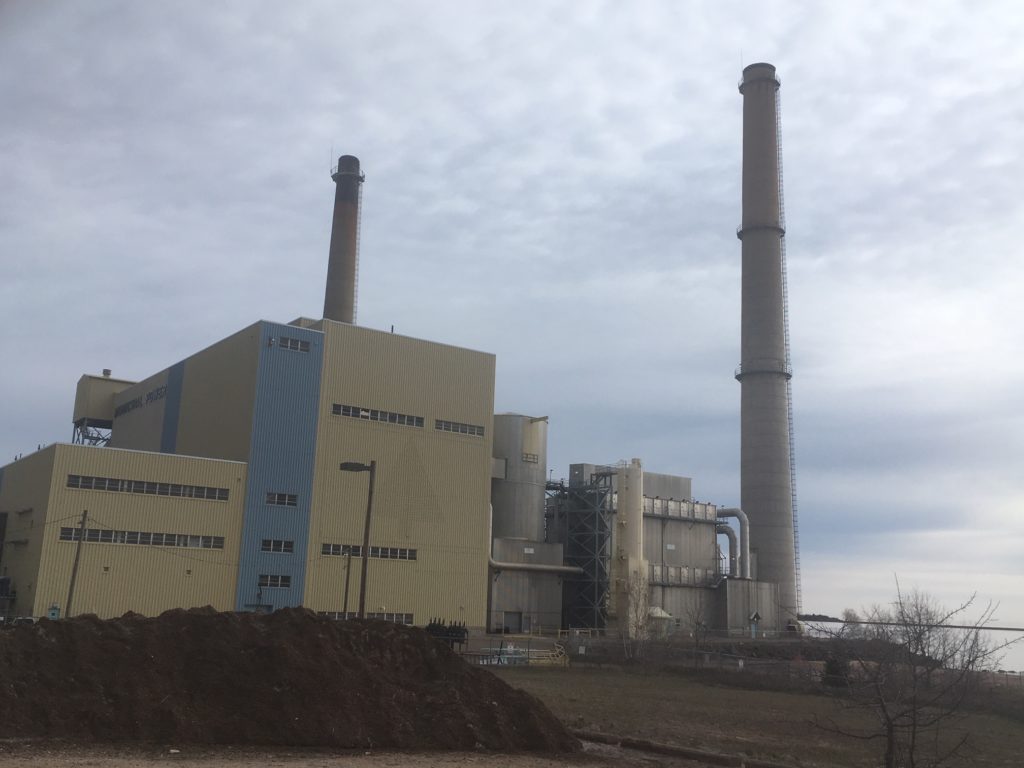
So that leaves the remaining six acres open for…development?
“We’ve got no need for the land,” Tourville continues, “and we’re not in the business of land development. So–and this is just my personal view– we should give the land to the City Commission and let them deal with it.”
Something else to be considered: About one third of the plant is actually sitting on landfill, technically Lake Superior. That means the state will weigh in on any major changes to the site.
The changes conceivably could include commercial development, bringing in tax revenue, but that seems highly unlikely.
“I can’t imagine that,” says city manager Mike Angeli, “but you never know.”
“We’d like to extend the lakeshore that the city owns,” says mayor Stonehouse. “I think it will likely be more green space.”
“We’re trying not to develop any more on the lake side of the road,” says city commissioner Jenna Smith. “But I could see us putting in some amenities on the land. Maybe benches or a bike path. I’m just excited that we’ll be able to look toward Harvey from now on and not see that power plant.”
Who’s likely to be cheering the loudest when the BLP plant comes down?
How about the residents on South Lake Street? They’ve got homes just across the street from the beach, a five minute bike ride to downtown…and yet there’s always been that big, ugly plant casting a shadow over the neighborhood.
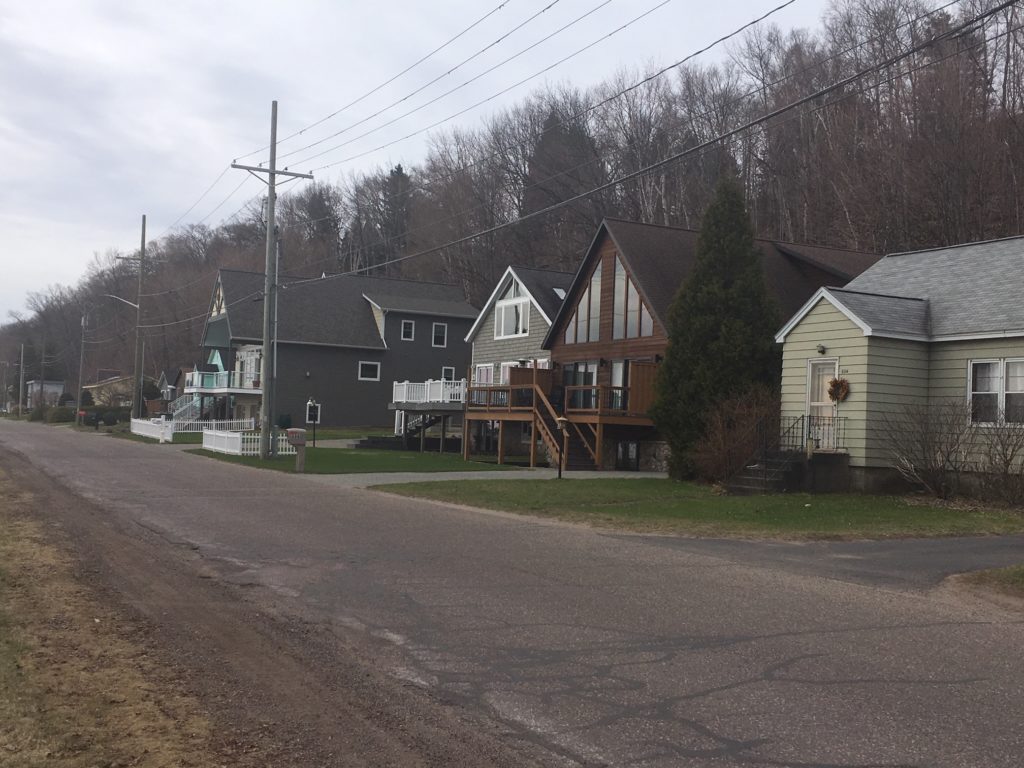
That’ll be gone soon, within a year, Tourville believes. BLP is now weighing plans and bids to take it down.
The Presque Isle Plant, on the other hand, may take longer. It’s bigger–35 acres–and it’s privately owned.
“Decommissioning is a multi-year project,” says Amy Jahns, the spokesperson for the WEC Energy Group. “At this time, we do not have immediate plans to remove the buildings or the stack. We are talking with the city of Marquette as well as the Lake Superior Community Partnership and keeping them informed as we develop those plans.”
City manager Angeli remains optimistic. “I was dreading that this might drag on for years, maybe decades,” he says, “but we’ll take care of it before then. It could become green space, but if someone wanted to develop it in taxable format, we might consider it.”
“It’s still going to be a light industrial area with the railway and Cliffs there with the port (for shipping out pellets),” Stonehouse says, “but it could be developed for housing or light business. One thing I can tell you, though, is no matter what it becomes, it won’t be belching smoke.”
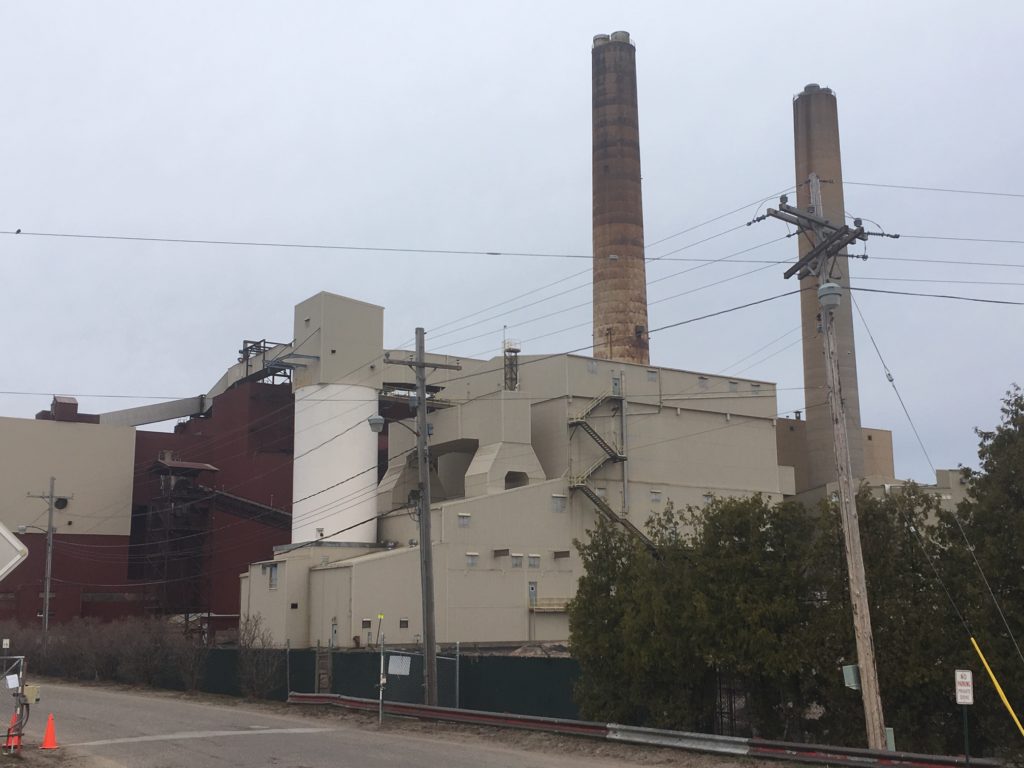
And it certainly won’t be an imposing hunk of metal squatting on Marquette’s shoreline.
The two power plants have served us well for the last half century. They’ve allowed us to grow and prosper but now their time has passed.
When they come down, we’ll likely see more grass, more sand, fewer shadows, and no more smoke.
It won’t be a return to the eighteenth century, but rather a step forward to a cleaner, brighter twenty-first century.


